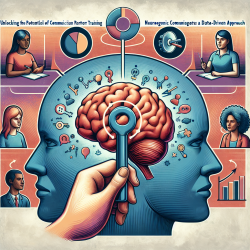As a speech-language pathologist, it's essential to continually refine our skills and strategies to create the best outcomes for the children we serve. The research article "Using Implementation Science to Inform Workforce and Service Development in Youth Mental Health: An Australian Case Study" provides invaluable insights into how we can enhance our practice, especially in the context of online therapy services. Here, we'll explore key takeaways from the study and how they can be applied to improve our online therapy services at TinyEYE.
Understanding Implementation Science
Implementation science focuses on the methods and strategies to promote the uptake of research findings into routine practice. It aims to bridge the gap between what we know works (evidence) and what is actually done in practice. This approach is crucial for ensuring that the interventions we use are effective and based on the best available evidence.
Key Takeaways from the Study
The study highlights several strategies that can be applied to improve online therapy services:
- Knowledge Translation: This involves synthesizing, exchanging, and applying knowledge to strengthen health systems and improve outcomes. For TinyEYE, this means staying updated with the latest research and incorporating it into our therapy practices.
- Adaptability: The ability to tailor interventions to meet local needs while maintaining fidelity is crucial. During the COVID-19 pandemic, the team at Orygen adapted their training programs to virtual formats, ensuring continuity of care. Similarly, TinyEYE can develop flexible online therapy modules that cater to the specific needs of each child.
- Dynamic Training: Engaging and interactive training methods are essential for effective learning. Orygen used various online tools to make their virtual training sessions dynamic. TinyEYE can incorporate similar tools, such as virtual whiteboards and live polls, to enhance our online therapy sessions.
Applying the Findings to TinyEYE's Online Therapy Services
By integrating the strategies from the study, TinyEYE can improve the effectiveness of our online therapy services:
- Continuous Learning: Encourage our therapists to engage in ongoing professional development and stay updated with the latest research in speech-language pathology and youth mental health.
- Customized Interventions: Develop and implement tailored therapy plans that address the unique needs of each child, ensuring that our interventions are both evidence-based and adaptable.
- Interactive Sessions: Utilize dynamic and engaging tools during online therapy sessions to keep children motivated and involved in their therapy.
Encouraging Further Research
Implementation science emphasizes the importance of continuous improvement and adaptation. Practitioners should be encouraged to conduct further research and contribute to the growing body of evidence in youth mental health and online therapy. By doing so, we can ensure that our practices remain relevant and effective in an ever-changing landscape.
To read the original research paper, please follow this link: Using Implementation Science to Inform Workforce and Service Development in Youth Mental Health: An Australian Case Study.










